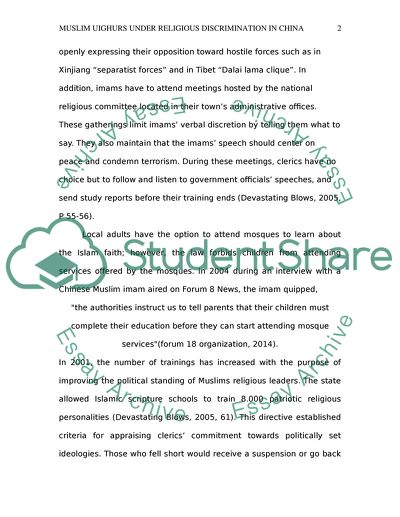Cite this document
(“Muslim Uighurs under Religious Discrimination in China Essay”, n.d.)
Muslim Uighurs under Religious Discrimination in China Essay. Retrieved from https://studentshare.org/social-science/1647989-muslim-uighurs-under-religious-discrimination-in-china
Muslim Uighurs under Religious Discrimination in China Essay. Retrieved from https://studentshare.org/social-science/1647989-muslim-uighurs-under-religious-discrimination-in-china
(Muslim Uighurs under Religious Discrimination in China Essay)
Muslim Uighurs under Religious Discrimination in China Essay. https://studentshare.org/social-science/1647989-muslim-uighurs-under-religious-discrimination-in-china.
Muslim Uighurs under Religious Discrimination in China Essay. https://studentshare.org/social-science/1647989-muslim-uighurs-under-religious-discrimination-in-china.
“Muslim Uighurs under Religious Discrimination in China Essay”, n.d. https://studentshare.org/social-science/1647989-muslim-uighurs-under-religious-discrimination-in-china.


